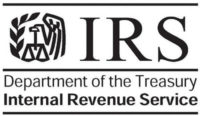Top Questions to Ask When Hiring a Cannabis Accountant

As a business owner, it is imperative to concentrate your time on only the most essential areas of your business. To focus more on revenue generation and growth strategy, outsourcing your accounting is one of the wisest decisions you can make for your cannabis business.
A great accountant will prepare financial statements, manage cash flow and ensure that you remain compliant with your state’s rules and regulations. Your best option is finding an accountant who possesses the required technical and business knowledge and has also navigated the cannabis industry and understands its nuances.
There are a lot of factors to consider when searching for the right accountant and it can be difficult to know what questions you should ask. We’ve put together this list with some important considerations that pertain to accountants in the cannabis industry.
1. Do you have a network of cannabis industry professionals?
One of the greatest perks of partnering with an accountant that’s already established in the cannabis space is that they typically have connections to other industry professionals that might be helpful in the future. For example, suppose you have questions about important legislation or what permits are required for certain operations. It’s beneficial to be connected with people that can answer these questions for you.
Similarly, an accountant well-versed in the industry can notify you of events, conferences and trade shows that may be beneficial to your business. A great indicator that an accountant is well established in the industry is that they’re members of well-known trade associations, for example, the National Cannabis Industry Association.
2. What formal certifications do you hold (enrolled agent, CPA)? Are you familiar with cannabis compliance?
A CPA (Certified Public Accountant) and an Enrolled Agent have passed the IRS’s testing and keep up with continuing education every year. Not only is it necessary that your accountant has all required licensing per Internal Revenue Services (IRS), but it is also crucial to make sure you’re operating in compliance with state laws for cannabis businesses.

While an accountant might hold the necessary certifications, they might not have the industry expertise to guide you through any compliance issues you might come across. It’s important that you choose someone who’s both properly certified and well versed in the cannabis space.
3. Are you currently representing cannabis companies? How long have you been in this industry?
There is nothing typical about the cannabis industry, and it operates differently from most other industries. Businesses that have operated in the cannabis space for several years and have a wide range of clients have more experience dealing with the challenges and obstacles that come with running a cannabis business.
Finding a cannabis accountant with experience is particularly important when it comes to compliance as the rules & regulations are constantly evolving. It’s often that compliance issues can lead to hefty fines from the IRS, so choosing someone familiar with the industry will save you from these penalties.
4. What are the advantages of outsourcing accounting rather than doing it myself?
While you can take a DIY approach and purchase software like QuickBooks, there is an inherent risk in tackling all of your accounting initiatives alone. As mentioned above, the industry has its own unique challenges that differ from businesses in other fields and failure to pay close attention to these things can result in serious financial and legal trouble. A great team of accountants has the knowledge to keep you informed on the ever-changing legislation and give you advice on how to avoid costly mistakes.
Similarly, outsourcing your accounting allows you more time to focus on the most critical aspects of your business. Running your own company is in many cases a 24/7 job, with entrepreneurs scrambling to find enough time to complete daily tasks and make efforts to grow their business. An accountant that keeps accurate records of your performance can give you the data needed to identify areas of improvement and increase overall productivity.
5. What are you expecting from me every month?
One of the main reasons why some clients are left dissatisfied by accounting firms is due to miscommunication surrounding each party’s expectations. A good accounting service will establish open communication around their own needs, goals, and objectives. Educating yourself on what an accountant expects from you will enable you to give them the information they need to provide accurate and efficient services.
On the other hand, it’s just as important that you understand what will be delivered by your accountant on a regular basis. Some firms operate on an annual basis and provide one-time bookkeeping or end-of-year tax preparation. Others take a more month-to-month approach, offering continuous business consulting and tailored services unique to your business. It’s helpful to have a checklist that both you and your accountant can reference that ensures you’re staying on the same page.
Why cannabis accountants are important
To meet the growing demand for cannabis, many dispensaries and other cannabis-related businesses are opening across the country.
A company in this sector has tremendous potential for success, but that success is not without risks, especially financial challenges. Throughout the cannabis industry, there is a need for financial professionals who can understand complex laws and regulations in order to make a legal profit from the industry.
Further, business owners require assistance in navigating complicated tax laws and managing primarily cash-based businesses without the support of traditional banks. It is advantageous to have an accounting team that is knowledgeable about all the traditional accounting functions, like financial reporting and bookkeeping.
Additionally, you should find someone who can help you make the right investments and manage the ongoing flow of money into and out of your cannabis business. A great accountant will guide you to the specific tax requirements applicable to your particular legal structure, how to pay taxes owed and if any tax deductions are available despite Internal Revenue Code (IRC) Section 280E.
References: